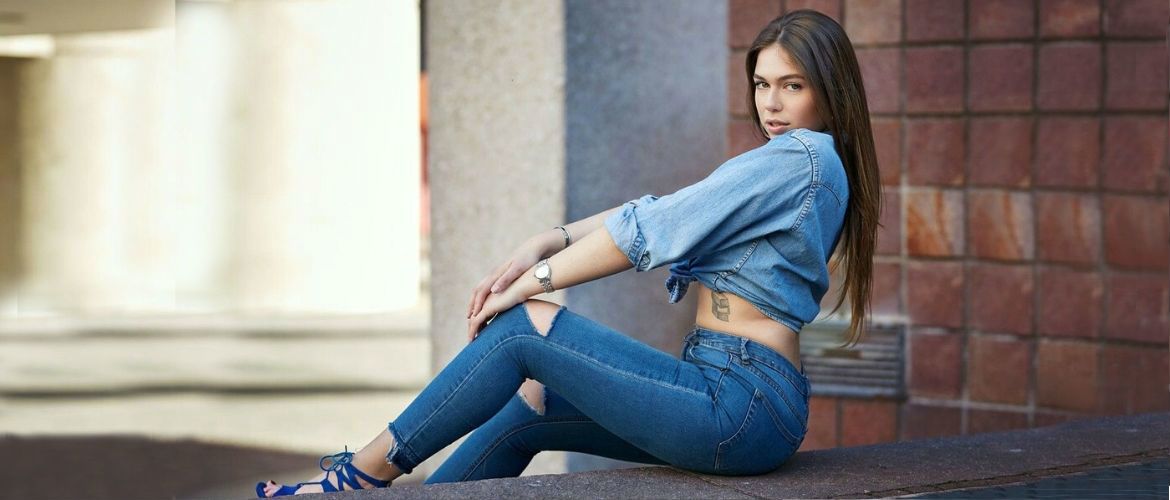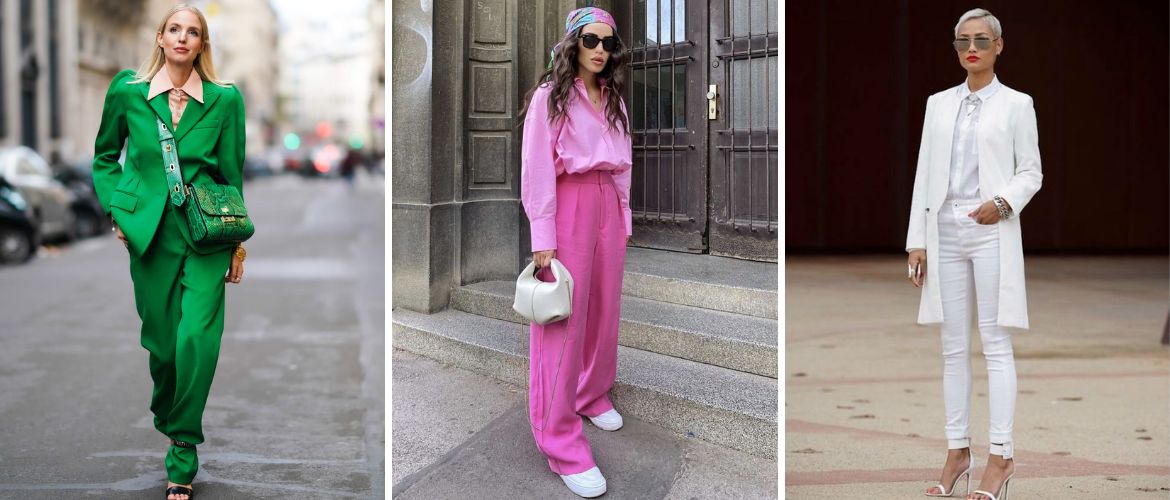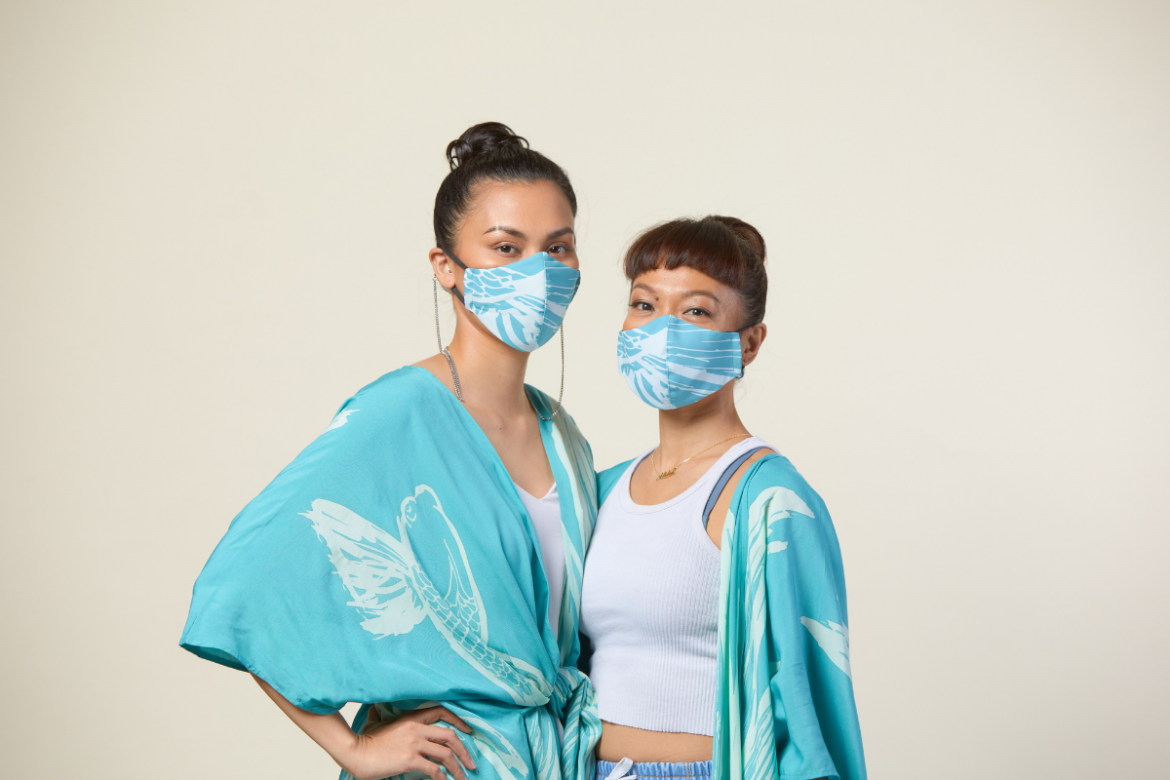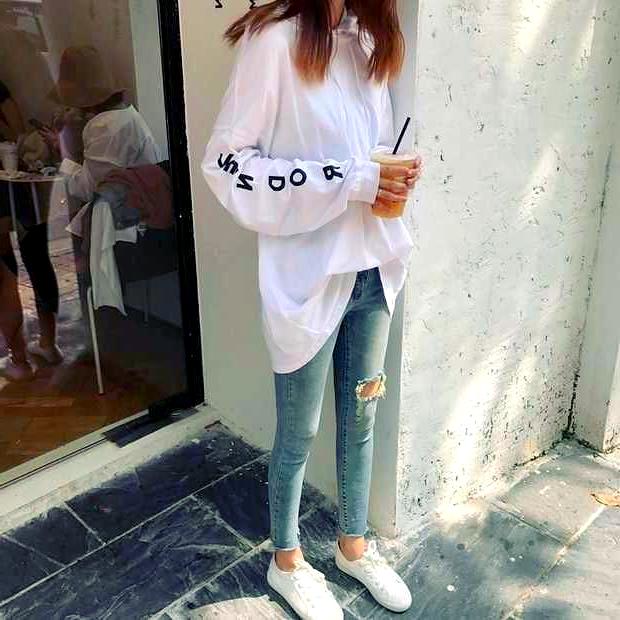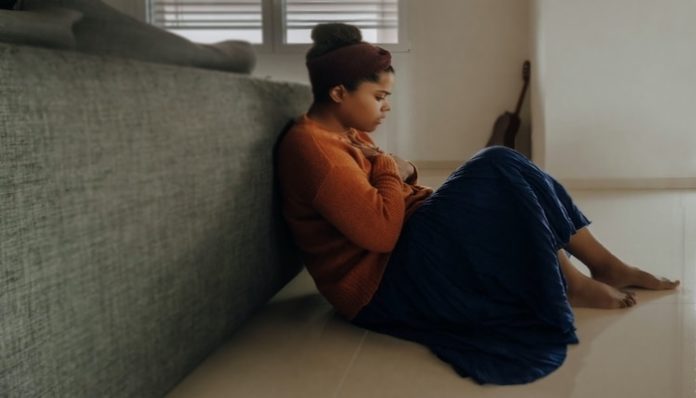
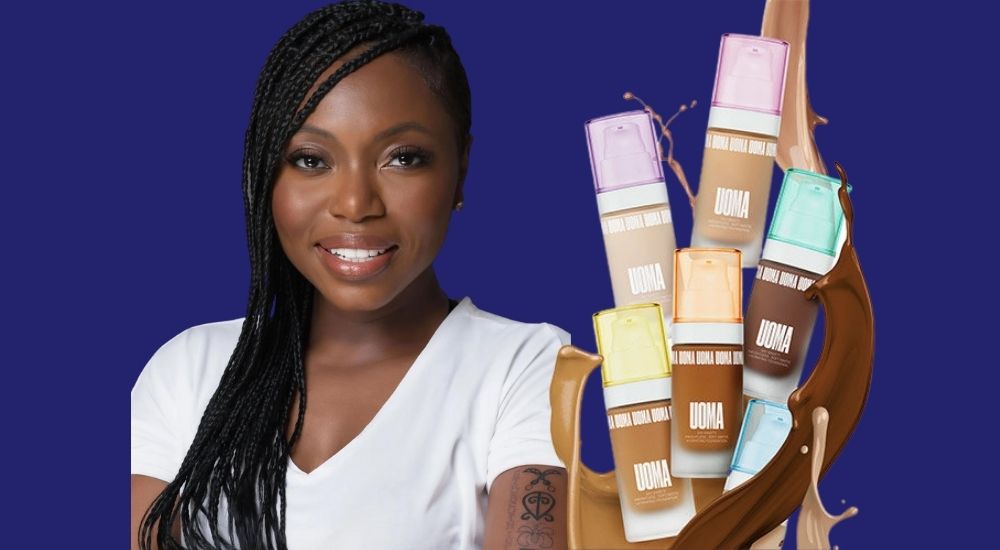
UOMA Beauty is a brand with a mission. UOMA’s founder Sharon Chuter is a Nigerian-born ex-beauty executive. She got her start in the early – just nineteen, Sharon negotiated the launch of Revlon in Nigeria, being a distributer before she turned 20. She then moved to Australia, where she was working as an executive for some of the biggest global brands in beauty. Tired of being the only person of colour in boardroom meetings and dealing on ranges that catered to white-skin only, Sharon started UOMA Beauty in 2022. The cosmetics lines are less a brand and more a movement – an ethos made evident by their first-ever marketing campaign. The one minute campaign opens using the voice of civil rights activist Malcolm X along with a fragment of his rallying cry: “Who taught you to hate yourself, from the surface of your head to the soles of your feet?” As women of complexions dance to afrobeat wearing colourful makeup, Chuter’s declares, “beauty is our birthright.”
While Sharon’s former colleagues will dsicover this “marketing” strategy risky, promoting socioeconomic and racial diversity was crucial for Chuter, who launched the brand in the second year from the Trump presidency. Appearing around the Drew Barrymore show in 2022, she said of her mission: “For me personally, it might be odd going about selling lipsticks and eyeliners when people are dying and starving- there wasn't any other option.” During Black Lives Matter she began the #pulluporshutup campaign – demanding brands posting in support of the movement demonstrate how many non-white employees these were employing in executive roles.
In 2022 named by WWD in their 50 Most Powerful Women, creating change across industries. We spoke to Shannon about entering the beauty industry at 19, championing change and why the needs a version of “diversity” beyond promotional initiatives and shade ranges.
Previous to UOMA what was your professional background in the beauty industry?
My first experience with beauty was with my mom and her red nail polish. My mom didn’t allow me to explore makeup as a concept until really late in life. At that time, I hated it! But it was great for me. I got to understand more about my inner before I learned how to express it with colour. But by the time I had been an adolescent, I was teenager exploring makeup I realised no major beauty brands were sold in Nigeria. I had been determined to change that. I had been responsible for bringing Revlon to Nigeria after i was 19 years of age. I later moved to Australia and began working my way up through some of the biggest names in beauty – from L’Oreal to LVMH.
How did your experiences working in an executive level within the beauty industry inform UOMA beauty?
I was constantly annoyed by beauty companies’ wherewithal to create items that focus on diverse customers. I would be in meetings about complexion products, sometimes the only person of colour within the room, and would on-site visit that my skin colour wasn’t represented in the product offering (and various other skin color, for instance). The executives would dismiss the comment. Like a woman of colour, I understand the impact insufficient representation is wearing women. I created UOMA to introduce a makeup range that is forward-thinking, radical and uncompromising. UOMA is really a global movement. UOMA is really a tribe where everyone is welcome. It’s a brandname through which I'm able to challenge the machine with items that are groundbreaking in innovation and exceptional in quality and made for everyone using their inception.
Can you know us concerning the #PullUporShutUp campaign you ran in 2022?
I launched the #PullUporShutUp campaign to spotlight the underrepresentation of black individuals corporate America – despite public statements from brands reacting to the anti-racism revolution surrounding the murder of George Floyd. The campaign was a social call-to-action for brands to produce the amount of black employees they have in corporate leadership roles [Shannon commented on the Drew Barrymore reveal that while representation was necessary, black individuals the boardroom and economic opportunities for black people in the beauty industry tend to be more important: “It’s just like a computer – whatever you place in is what’s likely to emerge.”]
“Over 350 brands have opened up from June 2022 to date, including brands such as Sephora, Revlon, Coty, and Milani.”
UOMA is known for having among the best shade ranges in the market, having a specific focus on a full spectrum of undertones. What was the process of creating 40 shades that varied within an undertone in addition to depth?
“Humans! One thing that distinguishes UOMA beauty from the majority of the marketplace is we test on actual humans. You see how big of a deal Covergirl made when they finally trialled on people! They did an entire advertising campaign around it. We don’t have to do an advertising campaign to say we tested our foundation on 350 skin tones from different backgrounds. When you test on real skin, everything falls into position. You’re adjusting tone according to real skin. Other brands go purchase a product out of the box, send it to a lap and shade match what is already on the market. Some are even sending Pantones! Literally Pantones. Many complexion products available on the market haven't been trialled on the person before they go to market. That’s our secret source.”
With relation to its representation, how important is it that makeup artists can shade match and focus on a range of skin tones?
It’s critical. I’ve never understood we have the title “Makeup Artist” within our industry after which someone you call a “POC Makeup Artist.” It creates an actual deterrent for makeup artists who wish to learn how to do skin of colour, because when you do, you receive pigeonholed into “You’re a makeup artist for skin of colour.” Or perhaps worse, if you’re a makeup artist of colour, the idea is you only do skin of colour. So then makeup artists who can’t focus on skin of colour are rewarded underneath the current system. Along with a makeup artist who can do all skin tones is moved into a niche space – that is crazy. It has to become the norm and also the standard, and when you can’t do all skin you need to be done with it. The same goes for hair! You don’t have to be “specialty” to know how you can braid. You need to know out of your education how you can style textured hair.
Your website includes educational content around colour matching for your skin tone and shade – this aids the buyer journey inside a D2C environment, but do you also feel it’s empowering to customers to have the ability to shade match themselves?
“Many people don’t know about their skin. UOMA is all about a lifestyle of s self-love and authenticity, and the journey of self-love starts with knowing yourself. I’ve found many of the things we hate about ourselves. Whenever we understand ourselves, we can turn those things into strengths. I don’t want to be the expert and the guru. I want to help my customers understand themselves and make independent choices. I want you to become the expert on your skin! I really want you to know, “well, that or this is my phototype.” Suppose I'm a HONEY, HONEY! What am i saying? Is my skin oily? Or is it combination? How do you react to the sun? Exactly why is the skincare ingredient inside?”
“Regarding ingredients, you want to show people why certain ingredients are included as opposed to running scare campaigns like “TOXIC FOR YOU” (when there’s no explanation why it's toxic). Information is power, so that’s what we lean into.”
What kind of progress have you seen over the last 5 years, and just what do you hope to see later on?
“We’ve seen some progress. The conventional has risen because individuals are more aware, and that’s nice. Consumers are those who can result in change. But inclusivity isn’t defined by shade range. At this time for those who have 50 shades, you’re labelled inclusive. No. Inclusivity has to be all around your ecosystem. Who are you employing? Because that affects that which you released into the market. Who's working behind the curtain? What creators are you currently working with? Inclusivity is 360.”
“You will see a brand with a shade selection of 50 or 60, however they don’t possess a mascara woman of colour can use. I'm the only brand on the planet operating in prestige and mass [Chuter launched UOMA in American mass retailer ULTA last year]. Because I understand that inclusivity isn't just about skin colour, it’s about including people in different social and economic backgrounds. And so i find it laughable seeing companies saying they are leading the control of inclusivity when their product are only sold at $40-50. What about people who can’t afford that? They're then not included in your world.”
“The industry needs to move past inclusivity just being about shades and complexion. For me personally, “inclusivity” isn't a buzzword. It’s a lifestyle. Even in a detriment to my brand image. How can you ask anyone to buy something at everywhere prices? But that’s the world we need to reside in. Where luxury is not based on scarcity, you can have accessibility without detriment to your “brand”. In my opinion luxury is now based on taste and cost. That’s what luxury is about. So when I only say each one is welcome within my tribe, ALL are welcome. And that i hope, and that i wish other brands would follow, but there exists a long way to go to get there.”
Want much more about diversity in the beauty industry? Read our Mind the Gap report.
Read the current issue in our digital magazine here:
- For more news and updates, sign up for our weekly newsletter
- Follow us on Instagram
- Like us on Facebook
- Join Australia’s largest network of beauty industry professionals on LinkedIn
- Subscribe to the print magazine
Have an idea for a story or need to see a topic covered on our website as well as in our pages? Get in contact at [email protected].



